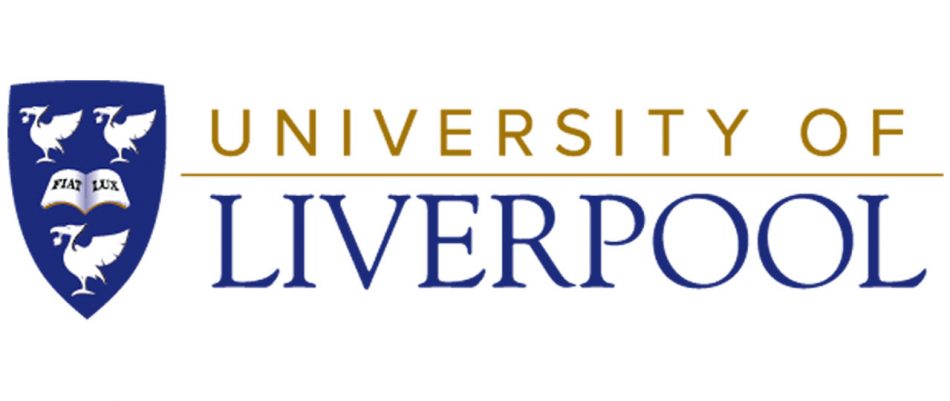Top Recruiting Companies
Leading companies that recruit from University of Liverpool
Overview of Placements and Employability
The University of Liverpool is renowned for its commitment to enhancing student employability through robust placement programs and dedicated career support. With a history dating back to 1881, the university integrates practical experience into its curriculum, ensuring graduates are well-prepared for the global job market. Placements, internships, and work-based learning opportunities are embedded across various disciplines, from engineering and business to health sciences and humanities. This approach not only boosts employability rates but also allows students to apply theoretical knowledge in real-world settings, fostering skills like teamwork, problem-solving, and innovation.
According to the latest Graduate Outcomes survey, 95% of Liverpool graduates are in work or further study within 15 months of graduation, placing the university among the top in the UK for employability. The average starting salary for graduates is approximately £28,000, with higher earnings in sectors like finance and engineering. These figures underscore the effectiveness of the university's placement strategies, which are tailored to meet industry demands.
Placement Opportunities Across Programs
The University of Liverpool offers a wide array of placement options, including sandwich years (a full year in industry), summer internships, and shorter work placements. These are particularly prominent in STEM fields but are available across all faculties. Students can access placements through the university's partnerships with over 1,000 employers worldwide.
- Engineering and Technology: Programs like Civil Engineering and Computer Science include mandatory placements with companies such as Siemens and Jaguar Land Rover, providing hands-on experience in design and project management.
- Business and Management: The Management School offers placements in marketing, finance, and operations, often with global firms like Deloitte and PwC, emphasizing strategic business skills.
- Health and Life Sciences: Medicine and Nursing degrees feature clinical placements in the NHS and private hospitals, ensuring compliance with professional standards.
- Humanities and Social Sciences: Law and Architecture students undertake internships in legal firms and architectural practices, building portfolios for future careers.
- International Opportunities: Through the Liverpool Global programme, students can secure placements abroad in Europe, Asia, and North America, enhancing cross-cultural competencies.
Placement durations vary: short-term (4-12 weeks) for skill-building, or year-long for deeper immersion. The university's Placement Team assists with applications, CV workshops, and interview preparation to maximize success rates.
Employability Statistics and Outcomes
The university's focus on placements yields impressive results. Below is a summary of key employability metrics based on recent data:
| Metric | University of Liverpool | UK Average |
|---|---|---|
| Employment Rate (15 months post-graduation) | 95% | 84% |
| Average Starting Salary | £28,000 | £26,500 |
| Graduates in Professional Roles | 78% | 70% |
| International Employment | 15% | 10% |
These statistics highlight the university's edge, particularly in high-demand sectors. For instance, engineering graduates often secure roles with salaries exceeding £30,000, while business alumni frequently advance to managerial positions within two years.
Career Support Services
The Careers & Employability Service at the University of Liverpool provides comprehensive support throughout a student's journey. This includes:
- One-on-one career consultations to identify strengths and career paths.
- Workshops on resume writing, LinkedIn optimization, and mock interviews.
- An online job portal, Liverpool Works, listing exclusive placement vacancies.
- Mentoring programs pairing students with alumni in target industries.
- Annual careers fairs attracting over 150 employers, including FTSE 100 companies.
- Skill development modules integrated into degree programs, such as data analysis and leadership training.
Additionally, the university's Enterprise Hub supports entrepreneurial students with placement-like experiences in startups, offering seed funding and incubation spaces. This holistic support ensures that even non-placement students gain valuable experience through volunteering and extracurriculars.
Top Employers and Graduate Destinations
Liverpool graduates are highly sought after by leading organizations. Key sectors include healthcare, technology, finance, and public services. Notable employers include:
- NHS and Healthcare Providers: 25% of graduates enter medical roles.
- BBC and Media: Opportunities in journalism and broadcasting.
- Deloitte, KPMG, and EY: For accounting and consulting positions.
- Unilever and AstraZeneca: In research and manufacturing.
- Government and NGOs: Roles in policy and international development.
Geographically, 60% of graduates stay in the North West of England, leveraging Liverpool's economic hub status, while others pursue opportunities in London, Europe, or overseas. Alumni networks, such as the Liverpool Guild, provide ongoing connections for career progression.
Success Stories and Final Thoughts
Many graduates credit placements for their rapid career starts. For example, an engineering alumnus secured a role at Rolls-Royce after a year-long placement, leading to innovative projects in aerospace. Similarly, business students have launched successful ventures post-internship with local firms.
In summary, the University of Liverpool's placement ecosystem equips students with the tools to thrive professionally. By combining academic rigor with practical exposure, the university ensures graduates not only find jobs but build fulfilling careers. Whether through structured placements or tailored support, Liverpool stands as a gateway to professional success.
Still have questions about University of Liverpool?
Our expert counselors are here to help you with any queries about studying at University of Liverpool.
Contact Us

